Water is a liquid that has no taste, scent, color, or smell, but we must have it to exist. It is also required by all living species, including plants and animals such as guinea pigs.
Guinea pigs may drink cold water, however, the water temperature should not be too cold. The ideal water temperature for guinea pigs is just below room temperature or between 60°F and 70°F.
Table of Content
Is Drinking Water (Any Temperature) Good for Guinea Pigs? | Health Benefits
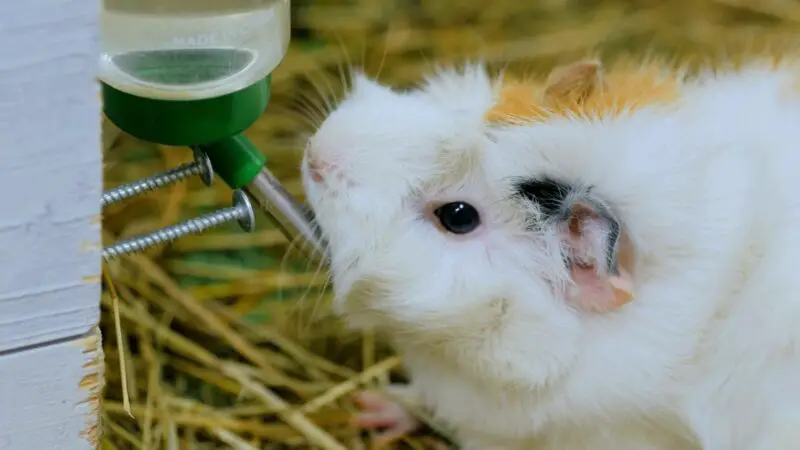
Overall, cold or warm water is beneficial to health and survival. It is a basic need for survival. It lubricates joints, stimulates saliva production, protects the skin, and cushions the spinal cord and brain. Also, it regulates body temperature, eliminates toxins through urine, maintains blood pressure regulation, and helps digestion.
Water is used to rehydrate and rejuvenate. The modest quantity of salt in the tap water is sufficient to keep the guinea pig hydrated and electrolyte-balanced. This will avoid cramps, which are frequently caused by dehydration.
Tap water also has some magnesium. Magnesium will keep all muscle tissues pain-free and healthy.
Nutrition Facts on Water
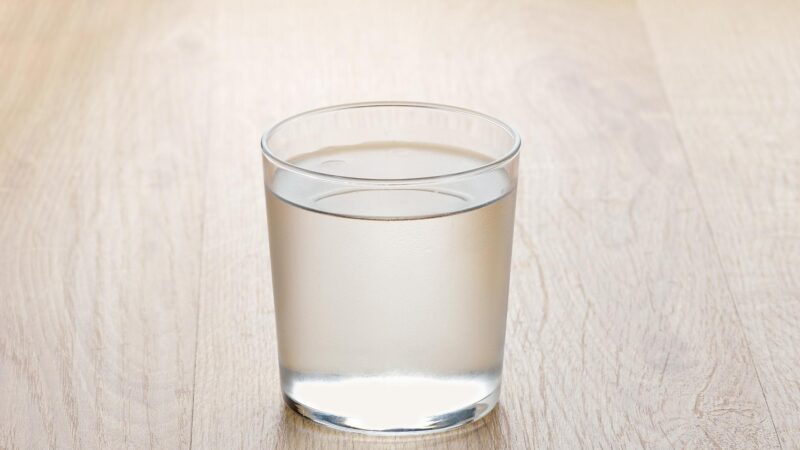
Here are the nutrition facts for 100 g (3 oz) of tap water:
- Zero calories
- Zero fat
- Zero carbs
- Zero fiber
- Zero protein
- Copper – 1%
- Magnesium – 1mg
And, here are the nutrition facts for bottled water:
- Zero fiber
- Zero calories
- Zero carbs
- Zero protein
- Sodium – 1mg
- Zero fat
Water lacks the vitamins required for good health. However, this is virtually an ironic remark, because no living entity can thrive without water. Water does, however, include amounts of sodium (salt), magnesium, copper, and calcium.
Salt (in modest levels) is required for the organism’s health. The body needs salt to obtain electrolytes. Electrolytes help to reduce cramping and dehydration. This is necessary since the body does not generate the minerals contained in salt.
Magnesium is required for healthy bones, cramps and pain relief, better heart muscle, and the avoidance of bone issues. Copper is required for healthy blood. It is responsible for the production of red blood cells.
Can Cold Water Be Bad for Guinea Pigs? | Possible Risks
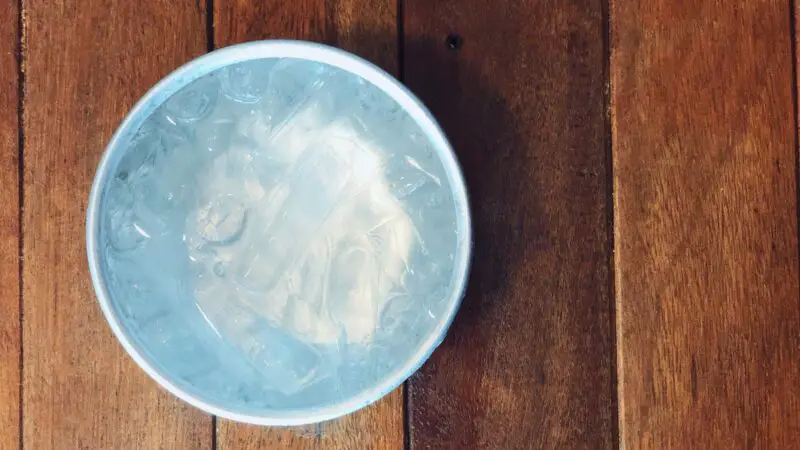
Cold water has no significant risks. Just make sure the water isn’t very cold, otherwise, it won’t be drinkable. The guinea pigs would test it, then take a step back and try again later when the water seemed warmer.
Serving Size, Preparation, and Frequency Of Water
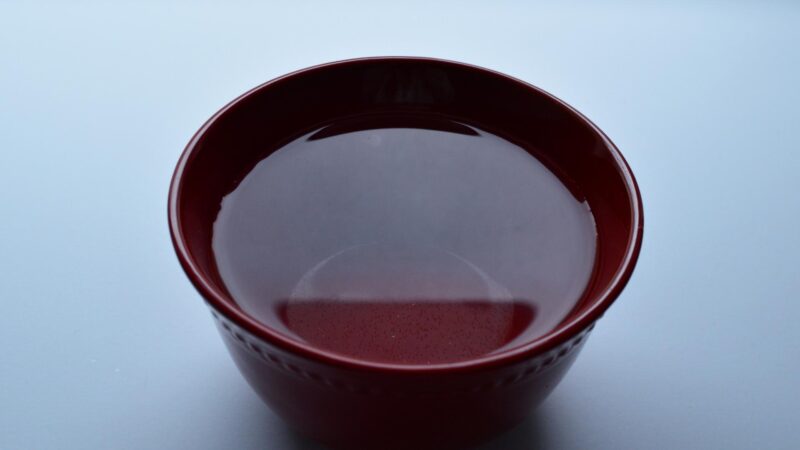
When it comes to water, the serving size is undetermined. In other words, consider it unlimited. The water bottle should constantly be filled with fresh water.
There is also no frequency. This means that water is required 24 hours a day, seven days a week. Always check the water bottle many times a day and replenish it as needed.
Preparation is straightforward. Simply put clean drinking water in clean water bottles, and you’re done.
More Information About Water and Guinea Pigs
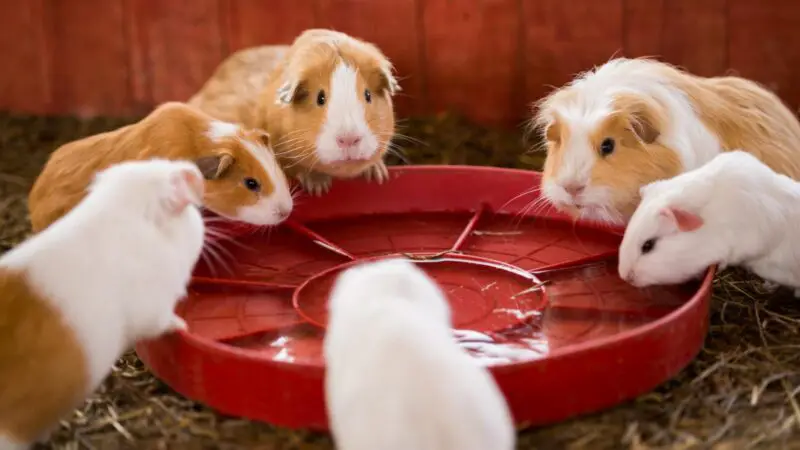
Can Guinea Pigs Drink Vitamin Water or Fruit-Flavored Water?
If you put vitamin drops or supplements in the water bottles, it is of no great use. The vitamins degrade too fast, so it’s better to leave the drinking water pure as it is because the vitamin will not have the desired effect. Also, supplements or vitamins might change the taste of the water and the cavies could dislike this.
However, guinea pigs can have fruit water. But, this means only organic fruit juices that are not too sweet, and that don’t have added sugars or aromas. They are diluted with water (ratio 50:50). However, this can be given rarely.
Can Guinea Pigs Drink Bottled or Tap Water?
It is more common for guinea pigs to have tap water. Bottled water often has many added minerals and vitamins, so this could be too much for the guinea pigs, of course, it depends on the type of bottled water you buy. But, as a general rule, if the tap water in your home is safe for you, it is great for the guinea pigs too.
How Much Water Should My Guinea Pig Drink?
There is no limit on giving water to guinea pigs. The water bottle must always be full of clean, fresh drinking water. Pay attention to this during the hot days! If your cavy eats a lot of fresh produce (watery veggies and fruits), it is normal to drink less water.
If the Cavy Drinks Less Water Then It Should, How Else It Can Get Hydrated?
You can always add more cucumbers to the diet, or lettuce that was rinsed with clean drinking water. Also, you can give the cavy some spinach, parsley, kale, and even zucchini. They all have a mild, neutral taste and are quite watery and refreshing.
Fun Facts on Water
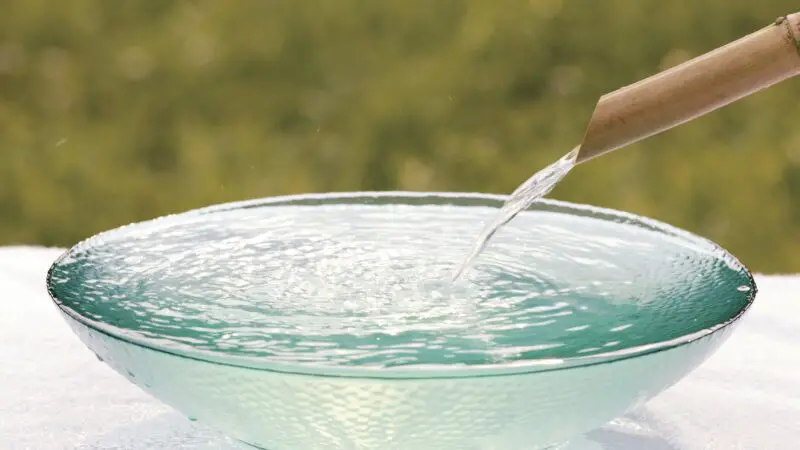
- Humans can survive a whole month without food, but they can only last one week without water.
- 97% of the water on Earth is salty and undrinkable.
- When it freezes, water expands by 9%.
- In order to make one beer pint, you need 20 gallons of water.
- A cucumber and a jellyfish are 95% water each.
- 70% of the human brain is water.
- Every day when we exhale, we lose 237 ml. of water.
- Water covers a whole 70% of the surface of Earth.
- The small drip from faucets can lead to water waste of 128 liters daily!
- The human bones are 31% water.
List of Sources
A Care Guide for Your Guinea Pig (Cavia Porcellus)
How to Care For Your Pet Guinea Pig
The Effects of Diet on Anatomy, Physiology and Health in the Guinea Pig
